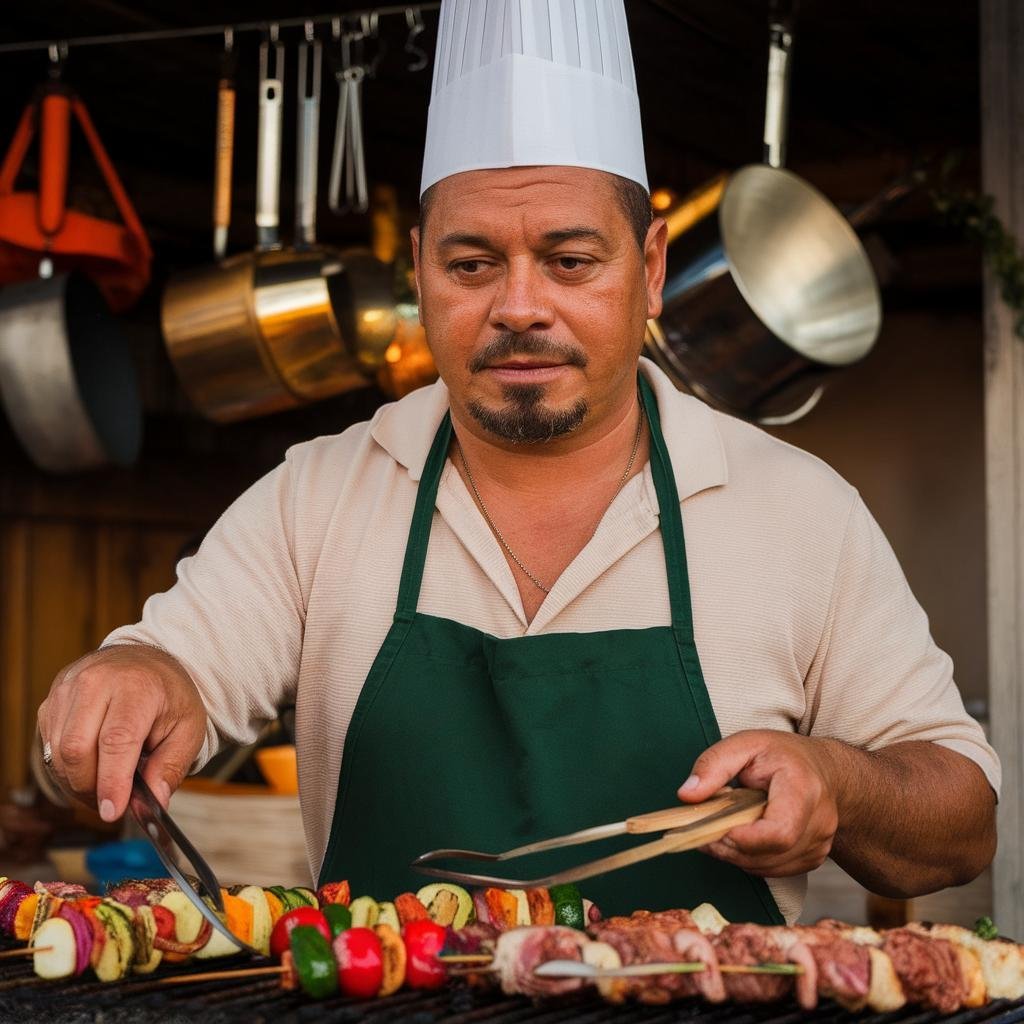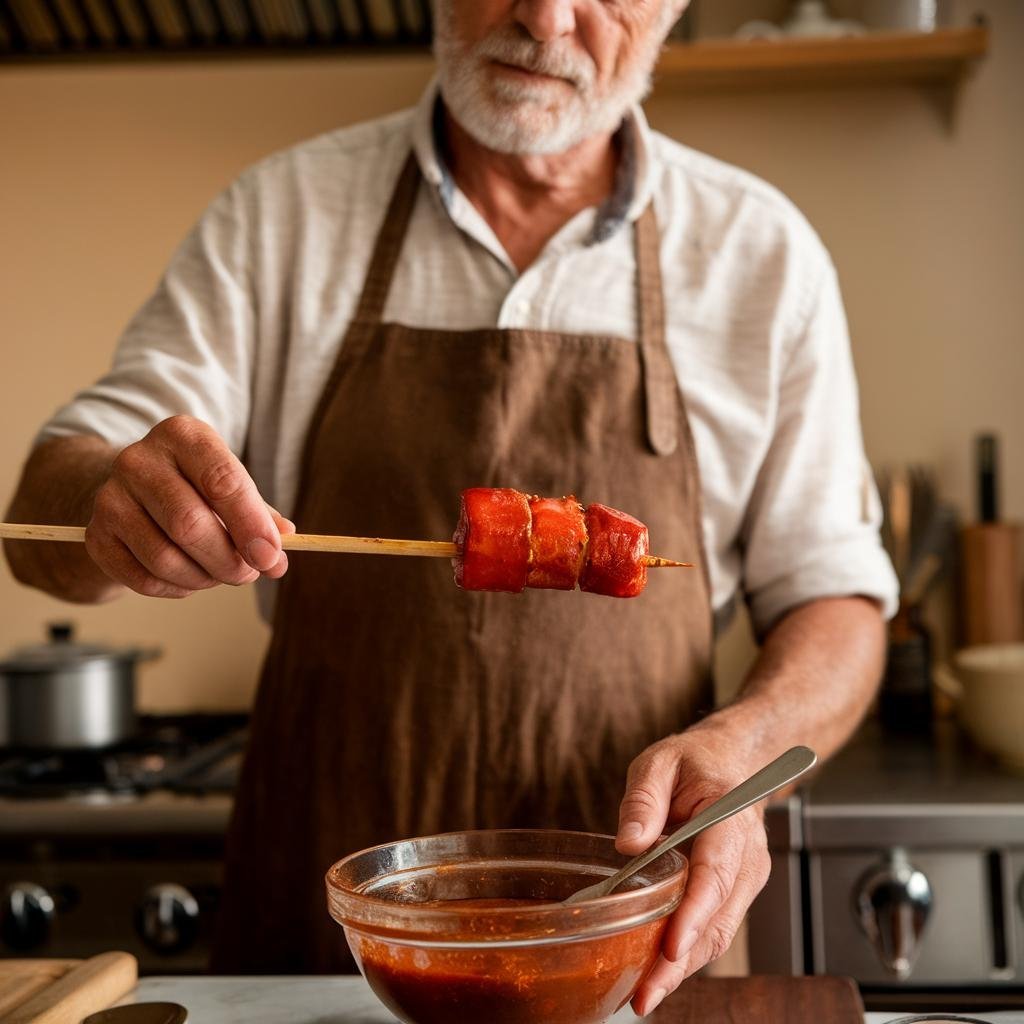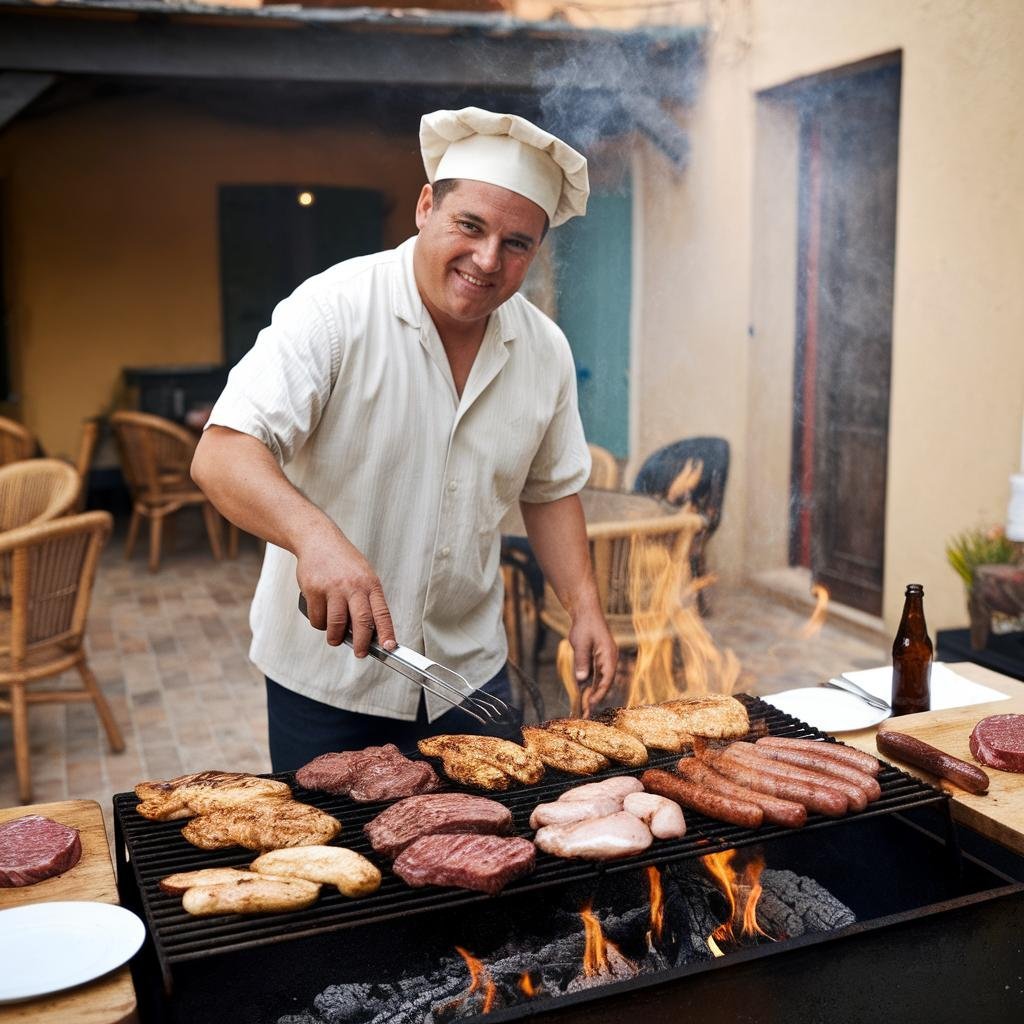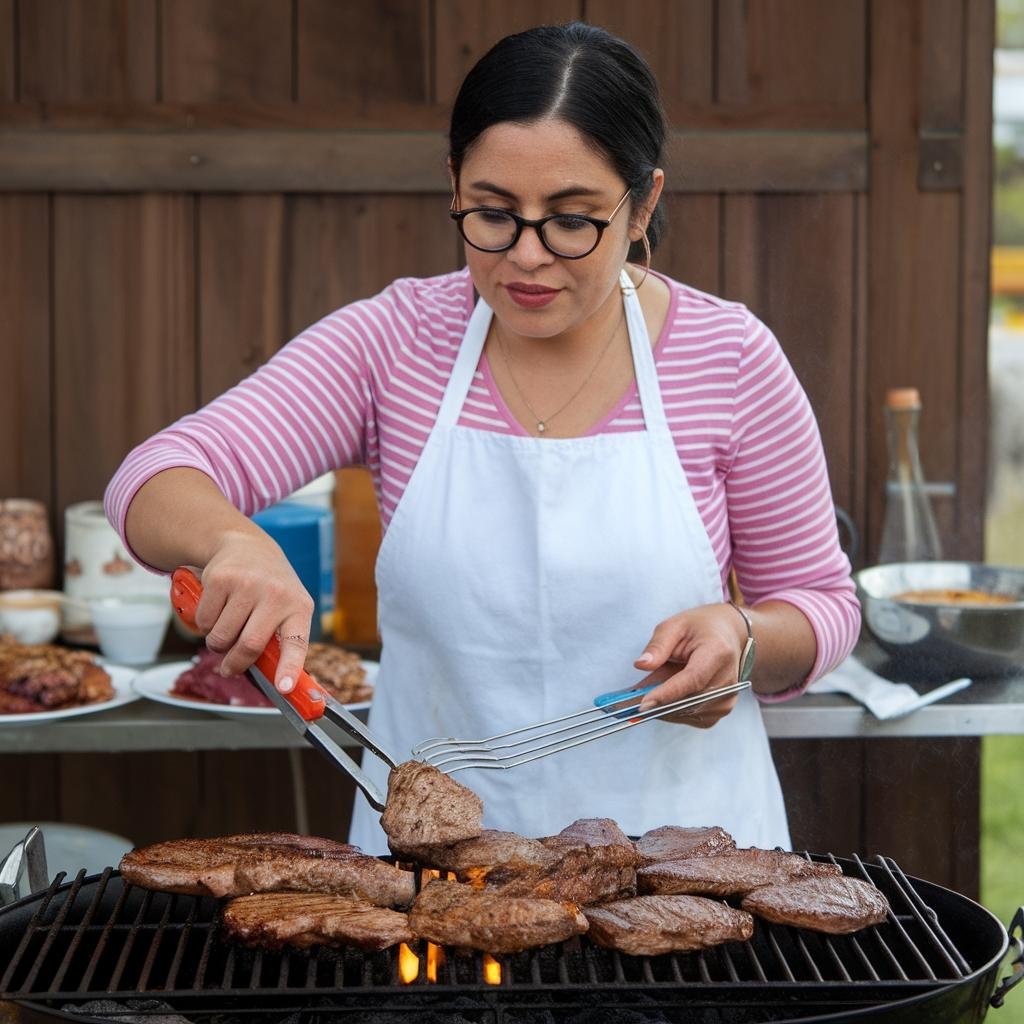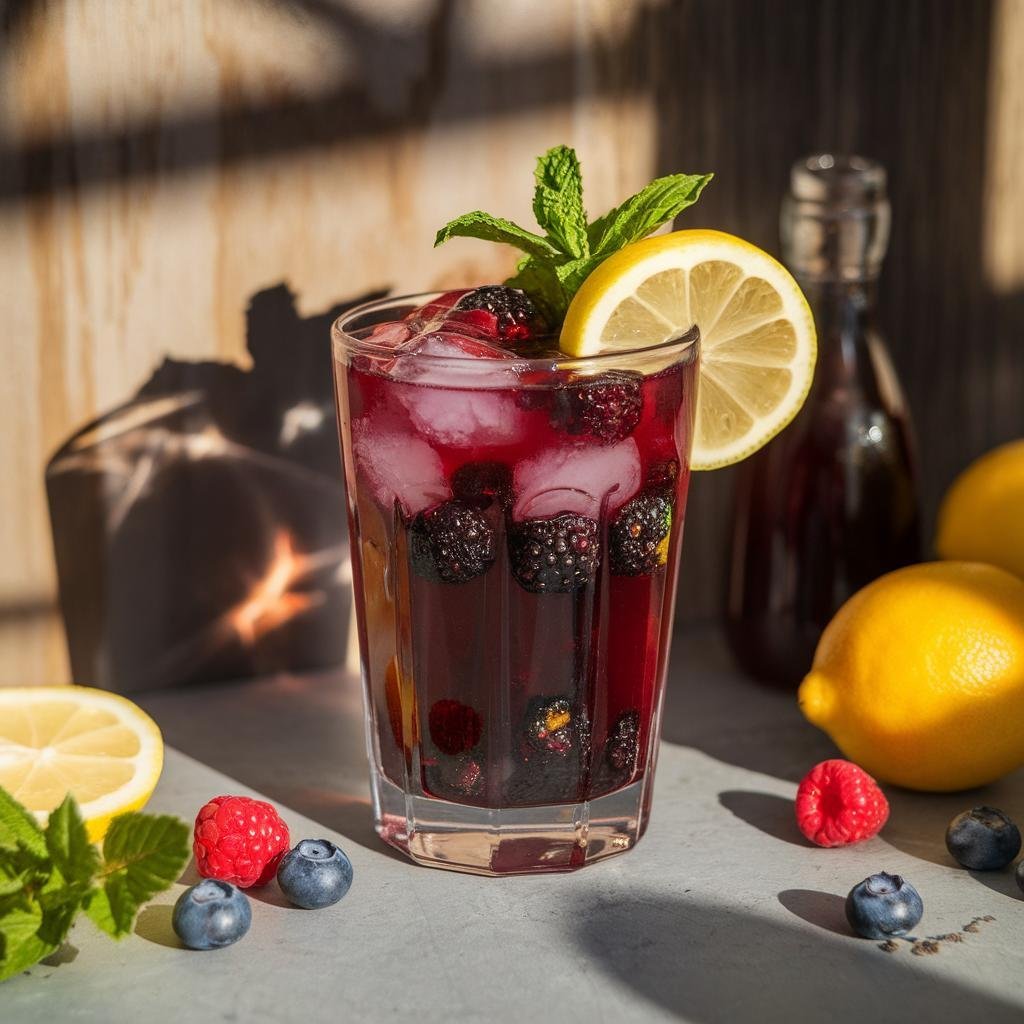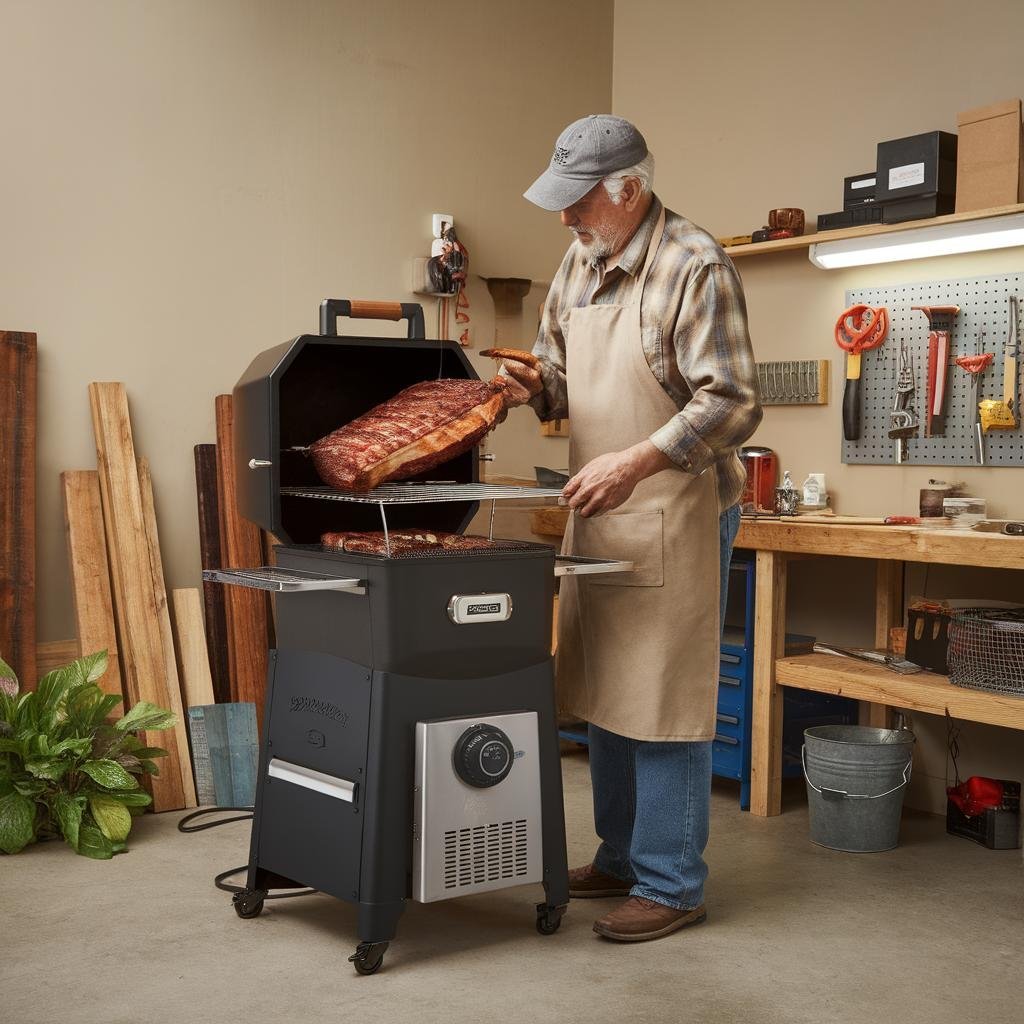Disclosure: This Post Contains Affiliate Links; We earn a commission on purchases.
Enhance your dining experience by finding the perfect wine match for your grilled and smoked foods. The right wine can complement the flavors of these dishes, striking a harmonious balance with the richness and smokiness of the food. Whether you’re grilling steaks or smoking fish, expert advice on wine pairing can elevate your meal to new heights.
Key Takeaways
- Choose wines that strike a balance with the flavors of grilled and smoked foods.
- Consider the acidity and intensity of the wine when pairing with rich and smoky dishes.
- Light wines like Riesling work well with smoked pork, chicken, or fish.
- Sour fruity wines such as Chardonnay and Sauvignon Blanc pair nicely with smoked fish or poultry.
- Dark fruity wines like Malbec complement red meat and can be used to make sangria.
Why are Wine and Smoked Food Pairing Important?
Pairing wine with smoked food is an art that can elevate your dining experience to new heights. When it comes to intense flavors of smoked meat, finding the right wine match is crucial to enhance the overall taste sensation. The goal of wine and food pairing is to create a harmonious balance, where neither the wine nor the food dominates or appears bland.
Intensely flavored smoked food can overpower the delicate flavors of the wine, making it taste flat and uninteresting. On the other hand, acidic wines can clash with the robust and smoky flavors of the food, resulting in an unpleasant and pungent taste.
By pairing the right wine with smoked food, you can create a symphony of flavors where each element enhances the other. The wine and the food should complement each other, bringing out the best in both. The right wine can cut through the fattiness of the meat, cleanse the palate, and amplify the flavors.
Pairing wine with smoked food is not only about creating a pleasant dining experience, but it is also about exploring the vast array of flavors and textures that can emerge from combining different wines and foods. It allows you to discover new nuances and complexities that you may not have experienced before. It is a journey of exploration and discovery, where each pairing opens up a world of possibilities.
“Wine and smoked food pairing is like a dance between two passionate partners. When performed with care and attention, it can create a magical experience for the senses.”
So whether you are a wine connoisseur or just someone who appreciates good food, don’t underestimate the importance of wine and smoked food pairing. It can take your dining experience to a whole new level, unlocking a symphony of flavors and creating unforgettable moments.
Next, let’s delve into a detailed guide on smoked food and wine pairing, where we explore different types of smoked food and the wines that perfectly complement them.
A Guide to Smoked Food and Wine Pairing
When it comes to pairing smoked food with wine, there are some general guidelines to follow. Different types of smoked dishes have unique flavors that can be enhanced or complemented by specific wine choices. Whether you’re planning a backyard barbecue or a fancy dinner party, understanding the art of smoked food and wine pairing can take your culinary experience to new heights.
Light Wines for Smoked Pork, Chicken, and Fish
If you’re smoking pork, chicken, or fish, opt for light wines with bright acidity and refreshing flavors. Riesling, with its crisp and fruity profile, is an excellent choice to complement these dishes. Its natural acidity cuts through the richness of the smoked meat, while the residual sweetness balances the smoky flavors. This combination creates a harmonious balance on the palate.
Sour Fruity Wines for Smoked Fish or Poultry
For smoked fish or poultry dishes, sour fruity wines like Chardonnay and Sauvignon Blanc work wonders. The acidity of these wines helps to cut through the intense flavors of the smoked fish or poultry, while their fruity notes provide a refreshing and vibrant contrast. This pairing creates a delightful balance of flavors on the palate.
Dark Fruity Wines for Smoked Beef and Large Steaks
If you’re smoking beef or serving large steaks, opt for dark fruity wines like Malbec. These wines have intense flavors and bold tannins that can stand up to the rich and smoky flavors of the meat. The dark fruit notes in Malbec, such as blackberry and plum, complement the depth of flavor in the smoked beef and create a powerful and satisfying pairing.
Medium-Bodied Sweet Wines for Poultry Meats and Seafood
Poultry meats and seafood dishes can be beautifully accompanied by medium-bodied sweet wines. Pinot Grigio and Moscato are excellent choices for these dishes. The slight sweetness of these wines enhances the natural flavors of the poultry and seafood, while their medium-body provides a pleasing mouthfeel. This combination creates a balanced and enjoyable pairing.
Bold Flavor Wines for Smoked Beef and Large Steaks
For a bolder and more robust pairing with smoked beef and large steaks, choose wines with bold flavors. Wines like Shiraz and Syrah have rich dark fruit notes, such as blackberry and black currant, that complement the smoky flavors of the meat. The bold tannins in these wines add structure and depth to the pairing, creating a truly indulgent experience.
Full-Bodied Wines for Smoked Beef and Pork
To enhance the flavors of smoked beef and pork, opt for full-bodied wines like Merlot and Cabernet. These wines have a rich and velvety texture that complements the robust flavors of the smoked meats. The dark fruit notes and smooth tannins in these wines create a luxurious and well-rounded pairing.
With this guide to smoked food and wine pairing, you can confidently take your barbecue or smoked dish to the next level. Remember, while these guidelines offer a starting point, experimentation is key to finding your perfect pairing. So grab your favorite smoked dish, pour a glass of wine, and savor the wonderful flavors that come from this harmonious combination.
Tips for Smoking Food Like a Pitmaster
To achieve the perfect smoked dishes, it’s important to follow some tips from pitmasters. These expert techniques will help you elevate your smoking game and impress your guests. From choosing the right food smoker to achieving the best flavors, here are some essential tips:
1. Choose the right food smoker
Investing in a pro food smoker, such as Bradley Smoker, can make a significant difference in the smoking process. Look for a smoker that offers temperature control, consistent airflow, and easy maintenance. This will ensure that you have better control over the smoking experience.
2. Brine the meat
Before smoking, consider brining the meat in a concentrated solution of water, salt, and spices. This technique enhances the flavor and tenderness of the meat, making it more enjoyable to eat. Let the meat soak in the brine solution for a few hours or overnight before smoking.
3. Use clean smoke
One key to achieving great smoked flavor is using clean smoke. Replace the fuel in your smoker before it turns to ash, as this can result in a bitter taste. Using fresh wood chips or chunks will ensure a clean smoke that enhances the natural flavors of the meat.
4. Use fresh raw meat
Smoking is all about flavor, and using fresh raw meat is essential to achieve the best results. Fresh meat has the ability to absorb the smoky flavors more effectively, resulting in a more flavorful end product. Choose high-quality cuts of meat from a reputable butcher for the best smoking experience.
5. Set the target temperature
Each cut of meat has an ideal smoking temperature that will result in the best texture and flavor. Use a meat thermometer to monitor the internal temperature of the meat and adjust the smoker accordingly. This will ensure that the meat is cooked to perfection, tender and juicy.
6. Switch heating elements
If your smoker has adjustable heating elements, take advantage of this feature. Different smoking techniques require varying heat levels, so be sure to switch the heating elements accordingly. This will allow you to experiment with different cooking methods, such as low and slow or hot and fast, to achieve diverse flavors and textures.
7. Allow ventilation
Proper ventilation is crucial when smoking food. It helps maintain a consistent cooking temperature and allows excess smoke to escape. Make sure your smoker has proper vents that can be adjusted as needed. This will help mitigate any potential fluctuations in temperature and ensure a more controlled smoking environment.
8. Balance the moisture level
Smoking can sometimes dry out the food, so it’s important to balance the moisture level. Place a pan of water or liquid, like apple juice or beer, in the smoker to create a moist environment. This will help prevent the food from drying out during the smoking process, resulting in juicy and flavorful dishes.
With these tips, you’ll be well on your way to mastering the art of smoking food like a pitmaster. Whether you’re a beginner or seasoned smoker, incorporating these techniques will take your smoked dishes to the next level.
Wine Pairing Tips for Different Barbecue Styles
Different styles of barbecue call for different wine pairings. Here are some expert tips to help you find the perfect wine to complement your favorite barbecue dishes:
North Carolina Barbecue with Sweet Sauce
- Pair with wines like Petite Sirah, Monastrell, Tannat, and Pinotage for a perfect balance of flavors.
South Carolina Barbecue with Spicy Mustard Sauce
- Aglianico, Sangiovese, and Montepulciano d’Abruzzo are great choices to enhance the flavors of this barbecue style.
Kansas City Barbecue with Classic Sauce
- For the classic sauce, try Cabernet Franc, Cabernet Sauvignon, Carménère, or a Cabernet blend to elevate your barbecue experience.
Plain Barbecue Pork
- Pair your plain barbecue pork with Zinfandel, Port, Dry Riesling, or Garnacha for a delightful combination of flavors.
Plain Texas-Style Beef Brisket
- For the Texas-style beef brisket, try Tempranillo, Australian Shiraz, or a GSM (Grenache, Syrah, Mourvèdre) blend for a fantastic wine pairing.
Burgers and Beef
- Sangiovese, Syrah, Merlot, Cabernet Franc, and Priorat blends enhance the rich flavors of burgers and beef.
Grilled Chicken, BBQ Chicken, Grilled White Fish, and Grilled Salmon
- For these dishes, a wide range of wines can be paired, including Sauvignon Blanc, Grüner Veltliner, Grechetto, Rosé, White Zinfandel, Gewürztraminer, Off-Dry Riesling, Friulano, Verdejo, White Vinho Verde, Colombard, Chardonnay, White Rioja, Viognier, Marsanne blends, Beaujolais, and Pinot Noir.
Remember, the key to a successful wine and barbecue pairing is finding a wine that complements the flavors of your dish. Experiment with different combinations to discover your personal favorites and enjoy the wonderful world of wine and barbecue!
Wine Pairing with Barbecue Sauce
The type of barbecue sauce used can greatly influence the wine pairing. Different styles of barbecue sauces, from smoky and spicy to sweet and tangy, call for specific wine matches to create a harmonious combination of flavors. Here are some recommendations for wines that beautifully complement popular barbecue sauce styles:
Texas-style Barbecue Sauce
Known for its smoky and spicy flavor, Texas-style barbecue sauce pairs well with bold and robust red wines. Consider Syrah, Cabernet Sauvignon, or Old Vine Zinfandel to balance the heat and enhance the richness of the barbecue.
Kansas City-style Barbecue Sauce
With its signature sweet and ketchup-based profile, Kansas City-style barbecue sauce pairs nicely with medium-bodied red wines. Reach for a Pinot Noir, Cabernet Franc, or Merlot to complement the sweetness of the sauce without overpowering it.
East Carolina-style Vinegar Sauce
The tangy taste of East Carolina-style vinegar sauce pairs beautifully with lighter, more acidic wines. Riesling, Moscato, and Rosé are excellent choices, as their flavors help to balance the tanginess and refresh the palate.
South Carolina-style Mustard Sauce
The unique flavor of South Carolina-style mustard sauce pairs well with wines that have a touch of oak and a bit of acidity. Chardonnay, Cabernet Sauvignon, and Sauvignon Blanc are excellent options, as they can complement the mustard tang while adding depth to the pairing.
Memphis-style Barbecue Sauce
Memphis-style barbecue sauce can vary from sweet to spicy and robust. For this versatile sauce, Pinot Noir, Cabernet Franc, and Merlot are great choices. These red wines have enough complexity to match the flavors and spice of the sauce.
Alabama White Sauce
The creamy and spicy flavor of Alabama white sauce pairs well with vibrant and refreshing white wines. Sauvignon Blanc, Chardonnay, and Pinot Grigio provide a nice contrast to the richness of the sauce, while their crispness complements the flavors of the barbecue.
Pairing the right wine with barbecue sauce can elevate your meal and create a delightful dining experience. Consider the flavors of the barbecue sauce and the characteristics of the wine to find the perfect match that enhances the overall enjoyment of your meal.
| Barbecue Sauce Style | Recommended Wine Pairings |
|---|---|
| Texas-style Barbecue Sauce | Syrah, Cabernet Sauvignon, Old Vine Zinfandel |
| Kansas City-style Barbecue Sauce | Pinot Noir, Cabernet Franc, Merlot |
| East Carolina-style Vinegar Sauce | Riesling, Moscato, Rosé |
| South Carolina-style Mustard Sauce | Chardonnay, Cabernet Sauvignon, Sauvignon Blanc |
| Memphis-style Barbecue Sauce | Pinot Noir, Cabernet Franc, Merlot |
| Alabama White Sauce | Sauvignon Blanc, Chardonnay, Pinot Grigio |
Conclusion
Pairing wine with grilled and smoked foods is a delightful experience that enhances the flavors of your dishes. Whether it’s a juicy steak or succulent ribs, finding the perfect wine match is a matter of personal preference. While red wines are often favored due to their ability to complement the high fat content in barbecue meats, don’t overlook the potential of white wines to create a harmonious balance.
When choosing a wine, consider the balance of flavors. The goal is to find a wine that enhances the taste of the food without overpowering it. Whether you prefer a bold and robust wine or a crisp and refreshing one, there is a wine out there that perfectly complements your barbecue feast.
Remember, wine and food pairing is an art, but it is also meant to be enjoyed. So why not invite your friends over for a barbecue party and embark on a flavorful journey together? Experiment with different wine and barbecue combinations, and let your personal taste guide you. Cheers to the joy of wine and food!
References

Ryan Conlon is a BBQ enthusiast and inspired chef on a journey through the smoky, savory world of outdoor cooking. Hailing from the heart of the Midwest, Ryan’s passion for grilling ignited during his early years, where family gatherings often revolved around the sizzle of the grill and the aroma of seasoned meats.

